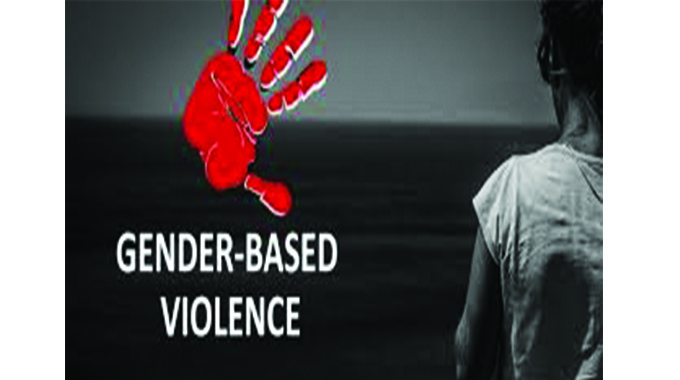Survivors want life in jail for abusers

Angela Sibanda, Chronicle Reporter
IT HAS taken a Bulawayo woman nearly 50 years to openly talk about how she was raped by her cousin when she was only 14 years old and her family swept the matter under the carpet.
Now 61 years old, the woman broke down as she narrated how her family concealed the crime thereby forcing her to live with the burden until the perpetrator passed away.
“I was staying with my uncle and my cousin who is a son to my mother’s elder sister raped me several times and each time he threatened me with a knife and when I reported the rape to the elders no one believed me,” said the woman whose identity cannot be revealed for ethical reasons.
She said each time she is reminded of the sexual assault, she is overwhelmed with emotion.
“I lost my virginity to someone who was forcing himself on me and this could have ruined my chances of marriage.
It’s actually by grace that I didn’t fall pregnant during the whole ugly and dirty ordeal. If I had my way I would ensure such monsters are sentenced to life in prison,” she said.
This sad story came out at a community consultation meeting on the Minimum Mandatory Sentencing on Rape and other sexual offences held at Pelandaba Hall last week.
The meeting was one of the public engagement meetings being held in all the 10 provinces following a petition that was submitted by Msasa Project to the Parliamentary Portfolio Committee on Women Affairs, Community and SMEs Development.
The woman said she decided to open up during the meeting for the first time as she felt the sentences that were being proposed for rapists at the meeting were not deterrent enough. She said even her children do not know that she was raped.
She said only life imprisonment will be deterrent enough.
Her harrowing experience is being reported as Zimbabwe today joins the rest of the world to mark the International Day for the Elimination of Violence against Women which falls on November 25 annually.
The day kicks off the 16 Days of Activism against Gender Based Violence, running from November 25 to December 10.
“I remember the morning after the day I lost my virginity, I endured the pain as I washed my bloody blankets. My cousin brother is now late but I continue to relive those painful moments from time to time,” she said.
Another woman told the same meeting that she was forced to take her teenage daughter to an orphanage after she was raped by an unidentified man who never served any sentence as he was let out on bail. He came back and threatened to take my daughter outside the country.
“My family is broken, I wished to live with my daughter and watch her grow but now I cannot because the abuser was let loose and he threatened to steal my daughter and take her to South Africa”, she said.
The woman said she also tried to seek help from lawyers and law association that deal with such issues but never got the help.
“I then decided to take my child to an orphanage to save her from this evil man and I also feel like the only sentence fit for such people is life in prison. Society should not accept such people back into the community,” she said.
According to statistics from the Zimbabwe Gender Commission, 22 women are raped daily in Zimbabwe,
646 are sexually harassed every month while one in three girls is raped or sexually harassed before they reach the age of 18.
Addressing Parliamentarians during a panel discussion on Gender Based Violence during Covid-19 on Tuesday, the Gender Commission CEO Ms Virginia Muwanigwa said Covid-19 has resulted in the rise of GBV cases as restrictions limited victims’ ability to report.
“The issue of travelling letters made reporting even harder as the process took time and victims felt it was uncomfortable to start explaining themselves on why they needed to travel to medical centres since their desired services were not being offered locally,” she said.
A representative of the Zimbabwe Republic Police during the discussions Chief Inspector Samantha Chanetsa said GBV cases involving children and disabled were posing challenges.
“Sexual harassment and other gender-based violence against children and the disabled are usually a matter of discovery rather than reporting which makes it difficult for cases to be handled as reports come after weeks, months or years,” she said.
According to the UN, nearly one in three women have been abused in their lifetime and in times of crisis, the numbers rise as seen during the Covid-19 pandemic and recent humanitarian crises, conflicts and climate disasters.
This year the United Nations is marking the 16 Days of Activism against Gender-based Violence from 25 November to 10 December 2021 under the global theme set by the UN Secretary-General’s UNiTE campaign: “Orange the World: End Violence against Women Now.”












Comments